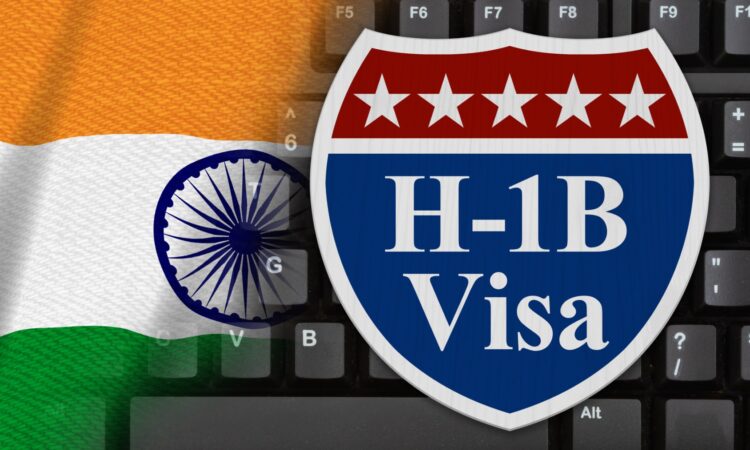
The Trump administration’s decision to place restrictions on H-1B visa contracts has come as a shock to many multinational IT companies. This is the case for Tata Consultancy Services, one of the largest employers of visa workers in the United States.
One of the largest consulting firms on the planet, it has announced a radical change in its hiring strategy. This was not its own initiative, but rather an obstacle put in place by the US government: the company must pay US$100,000 for each work visa it uses. Suddenly, hiring internationally is not as cheap as hiring US employees. Although globalization has created a free labor market, the US government has put the brakes on the huge influx of workers from third countries arriving in the United States.
New hiring strategy
The CEO of Tata Consultancy Services (TCS), K. Krithivasan, recently confirmed that the company will stop hiring new employees under the H-1B visa in the immediate future. And with good reason: TCS, a dominant force in the sector, was the second-largest sponsor of this visa in fiscal year 2025.
It’s no wonder they had to come to a halt; Tata Consultancy Services was the second-largest sponser for this kind of visa hire in fiscal year 2025, only behind Amazon.com Services LLC.
Tata Consultancy Services is a multinational information technology (IT) services company. It was founded in Mumbai in 1968 and was one of the first companies in the 1990s to use offshoring. The decision to rely on “local talent” in the United States is not an organic business adjustment, but rather an expected response to the tariff war imposed by the Trump administration against foreign visa programs.
The H-1B Visa: A Disadvantage for Domestic Talent?
This type of visa was designed to allow US employers to hire foreign workers in “specialized occupations.” This meant highly skilled fields such as science, technology, engineering, and mathematics. However, the program has been mired in intense controversy for many years. Although the H-1B visa was conceived as a solution to talent shortages, it was manipulated by large outsourcing companies to attract huge numbers of cheaper workers. By bringing in foreign labor, wages fell, hurting American professionals. Not only was the domestic workforce displaced, but wages in key sectors also stagnated.
TCS is one of the companies that has been playing the system to its advantage. In 2025 alone, the company obtained 5,505 H-1B visa approvals, including contract renewals —Amazon topped the list with 10,044 approved H-1B visas in FY2025. TCS currently has more than 11,000 employees in the United States with this visa. This company alone has 1/3 of all visas created: in total, there are about 32,000 or 33,000 employees with this visa throughout the United States.
The $100,000 fee for H-B1 visas
The state of the economy has prompted the government to take protectionist measures with its own population. The administration is set to sign an executive order imposing an unprecedented fee on work visas. It requires an annual fee of $100,000 for each new H/1B visa application. This fee applies strictly to new applications seeking to attract talent from abroad. However, it does not affect renewals of existing visas or employees who already have H-1B status.
For the global corporation that managed thousands of visas a year, the payment of $100,000 for each new employee becomes part of its business model. The logical alternative is simple: hire in the United States, where there is no need to pay this fee. Although it remains in force until Tarifa decides how to deal with the strong legal challenges from a coalition of companies and unions.
They consider this drastic measure to be unconstitutional, as it hinders the country’s economic competitiveness. For now, CS will reduce its reliance on temporary workers and jump through hoops to hire locally in the United States. For the next fiscal year, 2026, the company has only submitted 500 H-1B visa applications.




